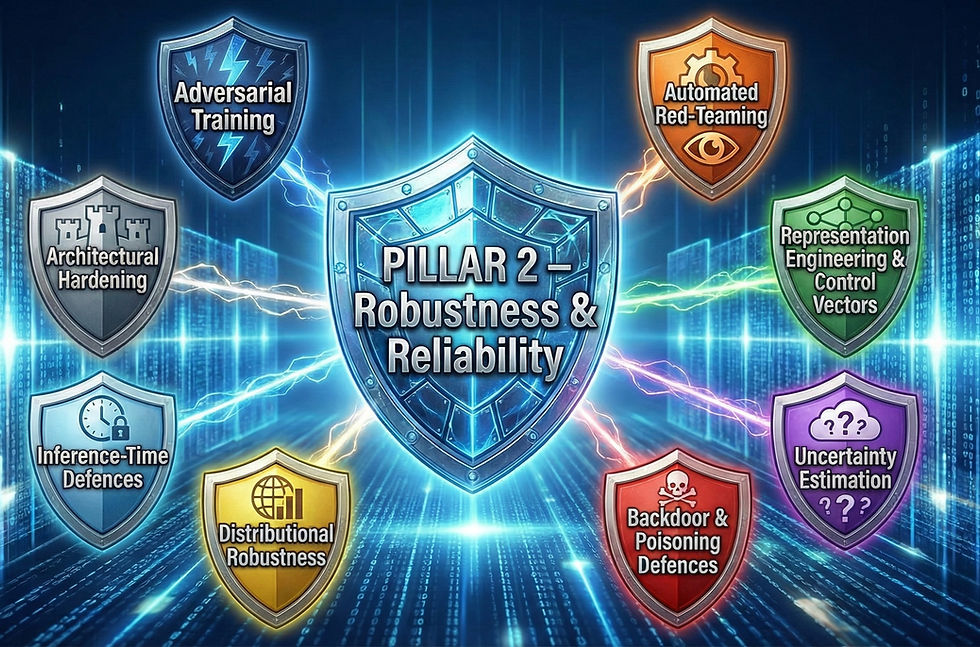The Agentic Revolution: Reimagining Workflows and Governance, Redefining Organizational Morphologies and Rediscovering Human Potential
- kerry6570
- Jul 10, 2024
- 3 min read
Updated: Nov 10, 2025
By Didier Vila, PhD - Founder and MD of Alpha Matica and Alberto Barroso, PhD - Global Head of Decision Science at Tetra Pak*

The emergence of intelligent agents, capable of learning, adapting, and executing complex tasks, is heralding a new era of automation. Of course, this new technology will require scientific supervision, continuous audits and robust governance with human supervision. However, this isn't just about efficiency gains; it's about a fundamental shift in how we work, how our organizations operate, and ultimately, how we define human value and prosperity in the workplace.
1. Agents as Catalysts for Workflow Automation
Intelligent agents are on their way to becoming the backbone of modern workflows, automating repetitive tasks, streamlining processes, and unlocking unprecedented efficiency.
Intelligent Process Optimization: Agents don't just follow rules; they analyze data, learn from patterns, and optimize processes in real-time. This means fewer bottlenecks, faster decision-making, and continuous improvement.
Data-Driven Decision Support: Agents sift through mountains of information, extracting actionable insights and presenting them in a way that empowers human decision-makers. This transforms gut feelings into data-driven strategies.
Cognitive Task Automation: From customer service chatbots to content generation tools, agents are taking on tasks that were once considered uniquely human. This frees up employees to focus on higher-level, strategic work.
2. Incorporating Decision Science and Ethical Governance with Intelligent Agents
To ensure the ethical deployment and decision-making of intelligent agents, the incorporation of robust decision science principles is essential, providing valuable guidance for their implementation and operation.
Decision Science is Key: Integrating decision science into AI agent deployment is crucial for ensuring ethical and optimized workflows. Decision scientists analyze data, algorithms, and outcomes to identify and mitigate biases, ensuring fairness and transparency in agent-driven decisions.
AI Auditors Play a Vital Role: AI auditors continuously evaluate AI agents to ensure their operations align with ethical standards and regulations. They advocate for transparency and accountability in automated decision-making, challenging opaque AI systems.
AI Governance Frameworks Provide Structure: Adopting AI governance frameworks, similar to regulations in other industries, ensures that intelligent agents operate within a structure that prioritizes human welfare and societal values. These frameworks guide continuous oversight and ethical evaluation, ensuring a balance between innovation and ethical obligations.
By embedding decision science and audit processes into the framework of intelligent agents, organisations can achieve a balance between harnessing the efficiency of automation and maintaining the human touch in decision-making.
3. The Ripple Effect: Transforming Organizational Morphologies
As agents weave themselves into the fabric of our workflows, they're not just automating tasks; they're reshaping entire operating models and the overall morphology of organizations.
Agile and Adaptive: Traditional hierarchical structures are giving way to more agile, network-based models. Agents facilitate seamless communication and collaboration, allowing teams to respond quickly to changing conditions.
Data-Centricity: Organizations are becoming increasingly data-driven. Agents collect, analyze, and interpret data at every step, enabling a deeper understanding of customer needs, market trends, and operational performance.
Human-Machine Collaboration: The most successful organizations are those that embrace a collaborative approach, recognizing that humans and agents each have unique strengths. Agents handle the routine, while humans focus on creativity, empathy, and complex problem-solving.
4. Beyond Efficiency: The Human Renaissance
The rise of intelligent agents isn't a threat to human workers; it's an opportunity for us to redefine our roles and rediscover our potential.
The Creativity Imperative: As agents take on more routine tasks, the demand for human creativity will only grow. We'll be the ones dreaming up new ideas, solving complex problems, and crafting compelling narratives.
The Empathy Advantage: In a world of automation, empathy becomes a key differentiator. Humans will be the ones building relationships, understanding customer needs, and providing emotional support.
The Quest for Meaning: As work becomes less about repetitive tasks and more about creative expression, we'll be able to focus on what truly matters – finding meaning, purpose, and fulfilment in our careers.
The agent-driven transformation is underway, and its impact will be felt across every industry and every aspect of our lives. By embracing this change, we can create a future where humans and machines work together to achieve more than we could alone allowing the human race to perpetuate and flourish.
Reference
Reclaiming Humanity in the Age of AI – Professor Daron Acemoglu | Atkinson Memorial Lecture 2024, link.
*The views and opinions expressed in this article are solely those of the authors.
.png)



